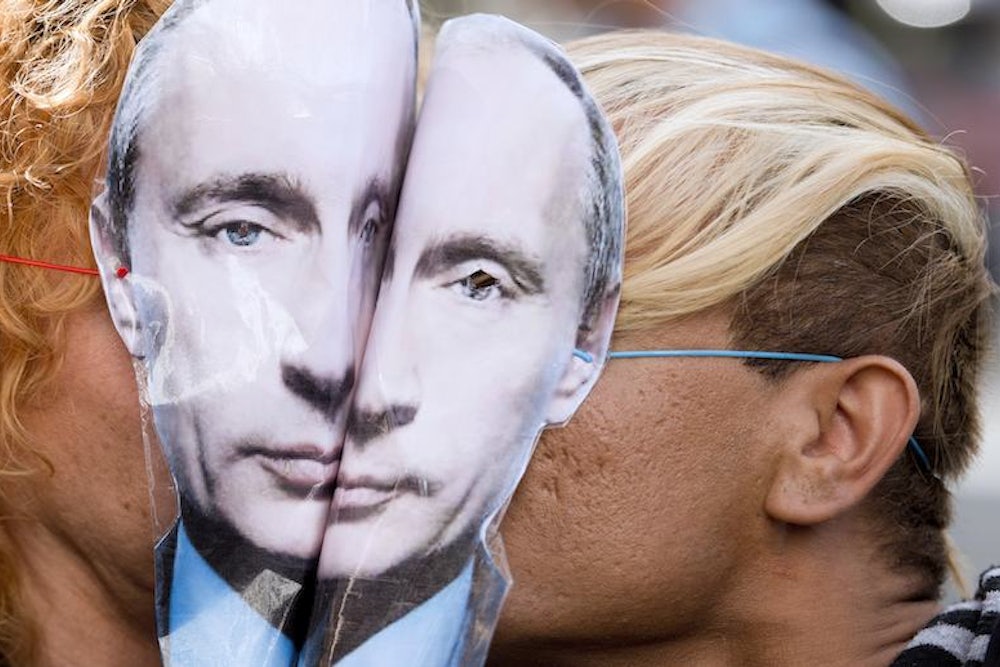On Wednesday, LGBT activist Alexey Davydov was supposed to take part in a protest against the Sochi Olympics but had to go to the hospital instead. Last night, he slipped into a coma. This morning, he was gone.
Before he was an LGBT activist, though, Davydov, who was 36, had been a democracy activist with the liberal umbrella group Solidarnost. It was in this capacity that he was arrested, in 2011, at a meager protest to defend Russians' rights to free assembly, and, in the process, had his arm so severely broken that he required a month's stay in the hospital. Davydov, a diabetic who was on dialysis, contracted an infection which led to kidney failure, his friends say. By the end, his health was so frail that, on a recent visit to Voronezh to protest gay discrimination there, a bout of food poisoning sent him into his first coma.
The police did not kill Davydov, in other words, but they sure didn't help.
About a month ago, I interviewed Davydov for a story on what life was like for gay Russians after Putin signed a series of strange, medieval anti-gay laws. Davydov, who spoke quickly and softly, was not interested in telling me the story of his coming out to his family and friends; he wanted to tell me what he was doing about the laws.
A month earlier, in July, he and a handful of other activists had gone to a Moscow children's library and Davydov unfurled a sign that said "Being gay is normal." He was immediately arrested and became the first person charged with violating the new law: spreading "propaganda about non-traditional sexual orientations among minors."
The plan, Davydov told me, was to force the Russian courts to take up the issue and be forced to define and grapple with a vaguely worded law. When we spoke, he was waiting for the local court to take his case, but he had bigger plans. "I hope to take this to the Constitutional Court," he said, referring to Russia's supreme court.
Now that Davydov is gone, it is not clear who will take up the mantle. In fact, it reveals a rather glaring hole: there are lots of democracy activists, but not as many LGBT ones, and not many of the former are willing to pick up their swords to fight for the latter, dismayed and horrified by the laws as they are. "He was the creative force behind LGBTA direct action," says journalist and LGBT activist Masha Gessen, "and this is what makes one realize just how few people there are."
